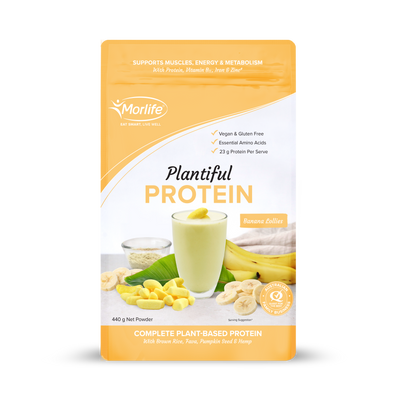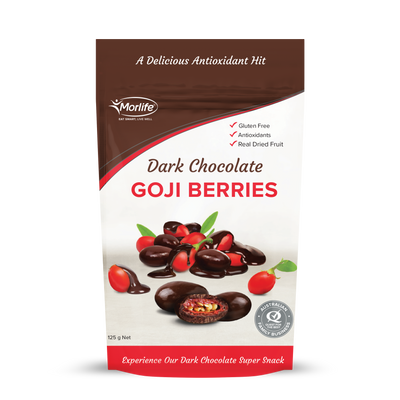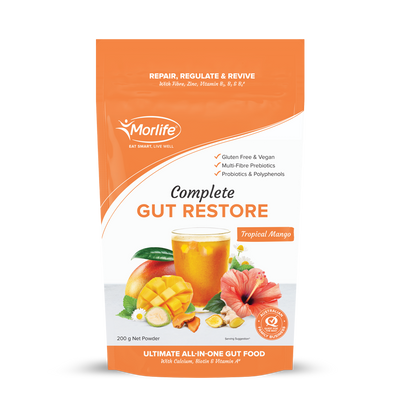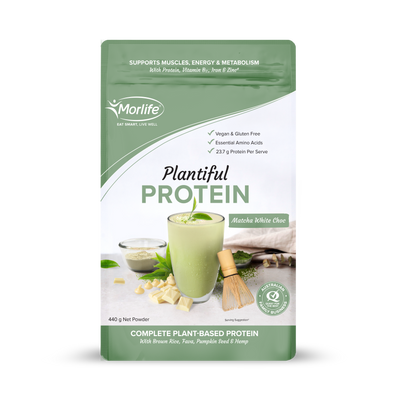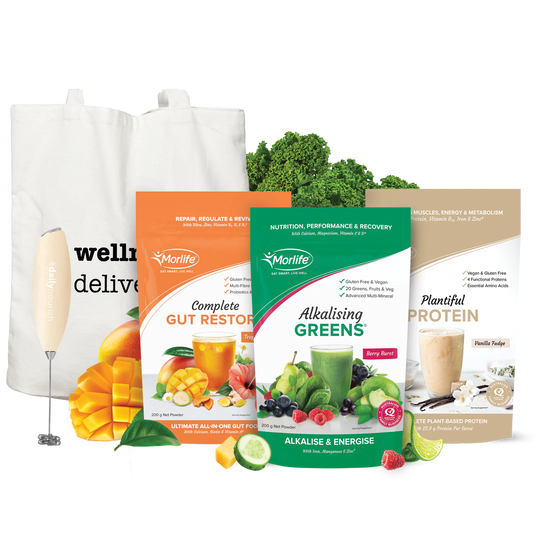The Low FODMAP Diet: What Is It & What You Need To Know
Recently there’s been a lot of hype around the low FODMAP diet, you may have even seen low FODMAP food products appearing in health stores, supermarkets and of course popping up on the internet. If you have absolutely no idea what we’re talking about here’s the lowdown on the FODMAP diet.

You wouldn't be able to eat this salad on the FODMAP diet
What does FODMAP mean?
FODMAPs are a collection of short-chain carbohydrates (sugars) which are found naturally in many foods or food additives. It stands for:
|
Fermentable |
Process through which gut bacteria ferment undigested carbohydrate to produce gas |
|
Oligosaccharides |
Fructans & galacto-oligosaccharides (GOS) |
|
Disaccharides |
Lactose- (found in dairy produce like milk, soft cheeses and yoghurt) |
|
Monosaccharides |
Fructose- (found in honey, apples, high fructose corn syrups) |
|
Polyols |
Sugar alcohols- sorbitol & mannitol (found in some fruits and vegetables and used as artificial sweeteners) |
This is how the low FODMAP diet came about. It was introduced as a two phase diet for patients with IBS created by medical professions. The diet includes a strict reduction of dietary FODMAPS followed by reintroduction of specific FODMAPs according to tolerance of the body. The diet is usually followed for a period of 2-6 weeks, monitored by a medical profession (usually a dietician). When following a low FODMAP diet, it is always advised that it is to be short term course of action with the long term goal being that you are able to return to a regular diet (including high fibre and FODMAP foods) of no restrictions.These molecules which are found in the foods can be poorly absorbed by some individuals where they can as a result experience symptoms of Irritable Bowel Syndrome (IBS). This occurs when the FODMAPs arrive at the large intestine, after being poorly digested in the small intestine. It is in the large intestine where they act as a food source to our gut bacteria. Our bacteria digest and ferment these FODMAPs which is when the IBS symptoms can occur.
The low FODMAP diet is not a solution to cure IBS but simply designed to help IBS sufferers manage and reduce their symptoms within a short period of time – a sort of dietary reset button if you will. Here in lies the problem: although the FODMAP diet may be beneficial for your gut when prescribed as followed for the two to six week period, long term the diet may actually have negative effects on our gut health.
Foods that are classified as high FODMAPs include many fruits and vegetables such as apples, pears, watermelon, asparagus, apricots, dairy foods, artichokes, garlics, onion plus vegetarian protein sources such as chickpeas, legumes and lentils. As you can see this is quite restrictive (hmm how do we make anything remotely Italian without garlic and onion?!). Importantly though, a strict FODMAP diet can result in poor intake of nutrient, vitamins, fibre and many phytonutrients. This also includes prebiotic fibres as essentially, that’s what a FODMAP is (such as inulin and FOS) which are beneficial for healthy bowels. The restriction also leaves the gut with unfavourable microbiota; As an example, fructans and galacto-oligosaccharides have prebiotic actions, when following a low FODMAP diet, foods including these sugars are excluded from the diet. Their restriction has been recently found to lead to a reduction in beneficial gut bacteria such as Bifidobacteria[1].

In a world with google and “google doctor” comes the potential for damaging misinformation and self-diagnosis. This, as you know, can be quite dangerous with many people putting themselves on restrictive diets without being monitored by medical professionals, especially if they don’t need to be (which is surprisingly often the case). We’ve seen this many times with gluten, where people put themselves on a gluten free diet without having any intolerance to gluten or even knowing exactly what it is. While we don’t discourage people making healthier lifestyle choices, it’s important these choices are made with proper knowledge and correct instigation. When taking on new diets, a pitfall people commonly encounter is the over-exclusion of foods rich in nutrients. Sometimes in the process of following guidelines so strictly (which we are all likely to when we get excited about undertaking a new change) we can inadvertently opt for foods that are highly processed and high in sugars resulting in empty nutrition!
As nutritionists, we stand by eating everything in moderation. Food variety is very important in the diet to ensure your body is getting an array of micro and macronutrients, and unless warranted, cutting out food groups can be detrimental when not properly informed or advised. So if you do think you may be suffering from IBS symptoms, we highly advise you to contact a health professional like a dietician, nutritionist, naturopath or your GP in order for them to help you get to the root of the problem so you see the results you need.

